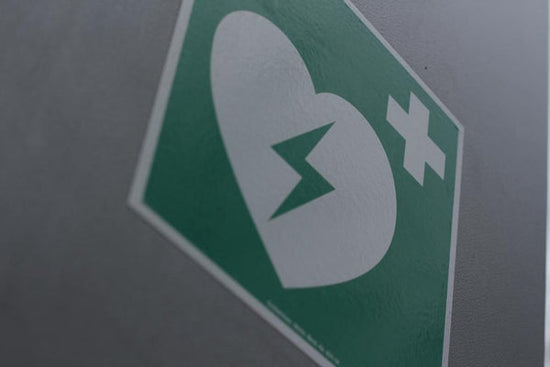Snoring can be a real problem, both for the person who snores and for their bed partner. Not only does it disrupt your sleep, but it can also lead to serious health issues like sleep apnea. Fortunately, there are some simple things you can do to stop snoring and get a better night's sleep. Here are the top 3 tips.

#1 - Change Your Sleeping Position
One of the main causes of snoring is sleeping on your back. According to experts, sleeping on your back can cause the muscles in your throat to relax, leading to the infamous snore. As you fall asleep, the soft tissues in your throat can collapse, narrowing your airway and causing the sound of snoring. Additionally, sleeping on your back can also cause your tongue to fall backward, obstructing your airway even further.
But, there are other factors that can exacerbate snoring when sleeping on your back. Being overweight, drinking alcohol, and smoking can all increase the likelihood of snoring, making it even more challenging to get a good night's sleep.
Luckily, there are ways to combat snoring caused by sleeping on your back. One simple solution is to try changing your position (like sleeping on your side) which can help keep your airway open and reduce snoring. Another option is to use a special pillow that can help keep your head and neck aligned, making it easier to breathe throughout the night.
In the end, it's essential to understand how your sleeping position can impact your snoring and overall quality of sleep. You can use a body pillow to help keep you in this position or try taping a tennis ball to the back of your pajamas to discourage you from rolling onto your back. By following these steps, you could finally say goodbye to the annoying snore and wake up feeling refreshed and ready to take on the day.
#2 - Keep Your Airways Clear
Another way to reduce snoring is to keep your airways clear. Allergies, congestion, and other respiratory issues can all contribute to snoring. To alleviate these issues, try taking a hot shower before bed to help clear your sinuses or use a saline nasal spray to keep your nasal passages moist.
Additionally, avoid sedatives before bed. Sedatives can contribute to snoring by causing the airway in the throat to narrow. When the airway becomes narrow, air has to pass through a smaller opening, which can cause the soft tissues in the throat to vibrate. This vibration creates the sound of snoring.
Sedatives such as alcohol, tranquilizers, and sleeping pills can all have this effect. They can also reduce the activity of the muscles responsible for keeping the airway open during sleep. As a result, snoring may become more frequent and louder.
Lastly, staying hydrated throughout the day can help keep your nasal passages clear and reduce congestion, making it easier to breathe at night. Try to increase the amount of water you're drinking throughout the day, even a little could make a big difference.

#3 - Try an Anti-Snore Device
If other options are not working, it may be time to consider consulting a doctor, a sleep specialist, or purchasing over-the-counter anti-snoring equipment. SnoreLessNow has a product known as a mandibular advancement device that is designed to improve the overall quality of sleep and reduce snoring at night.
A mandibular advancement device (MAD) is a dental appliance that is worn in the mouth to treat sleep apnea and snoring. It is also known as a mandibular repositioning device or a mandibular splint. The device works by repositioning the lower jaw forward to keep the airway open during sleep, thereby reducing snoring and the symptoms of sleep apnea.
The MAD consists of two separate trays that fit over the upper and lower teeth, connected by adjustable hinges. By advancing the lower jaw forward, the device pulls the tongue and soft tissues forward as well, which helps to keep the airway open and reduce the risk of obstruction during sleep.
MADs are a popular treatment option for patients with mild to moderate sleep apnea who prefer an alternative to continuous positive airway pressure (CPAP) therapy. They are typically prescribed by a dentist or sleep specialist and can be custom-made to fit the individual's mouth for optimal comfort and effectiveness.
“Be fearless in trying new things, whether they are physical, mental, or emotional, since being afraid can challenge you to go to the next level.” - Rita Wilson.

Bonus Tip - Invest in a Humidifier
Still not able to sleep? Try purchasing a humidifier to condition your sleeping space before bed at night. By adding moisture to the air, a humidifier can help to reduce congestion and inflammation in the airways. This makes it easier for air to pass through, reducing the likelihood of sleep apnea. In addition, a humidifier can also help to lubricate the throat and nasal passages, which can further reduce the vibration of the tissues and minimize snoring.
But not all humidifiers are created equal. For best results, choose a model that is designed specifically for snoring, such as a cool mist humidifier. And be sure to keep it clean to avoid any bacterial buildup that could actually make snoring worse.
Final Thoughts
Snoring can be a frustrating problem, but it doesn't have to be a permanent one. By changing your sleeping position, keeping your airways clear, and looking into treatment options such as a mandibular advancement device (MAD), you can reduce or even eliminate your snoring. Give these tips a try and see how much better you feel in the morning. For a more in-depth & comprehensive guide, click here!






